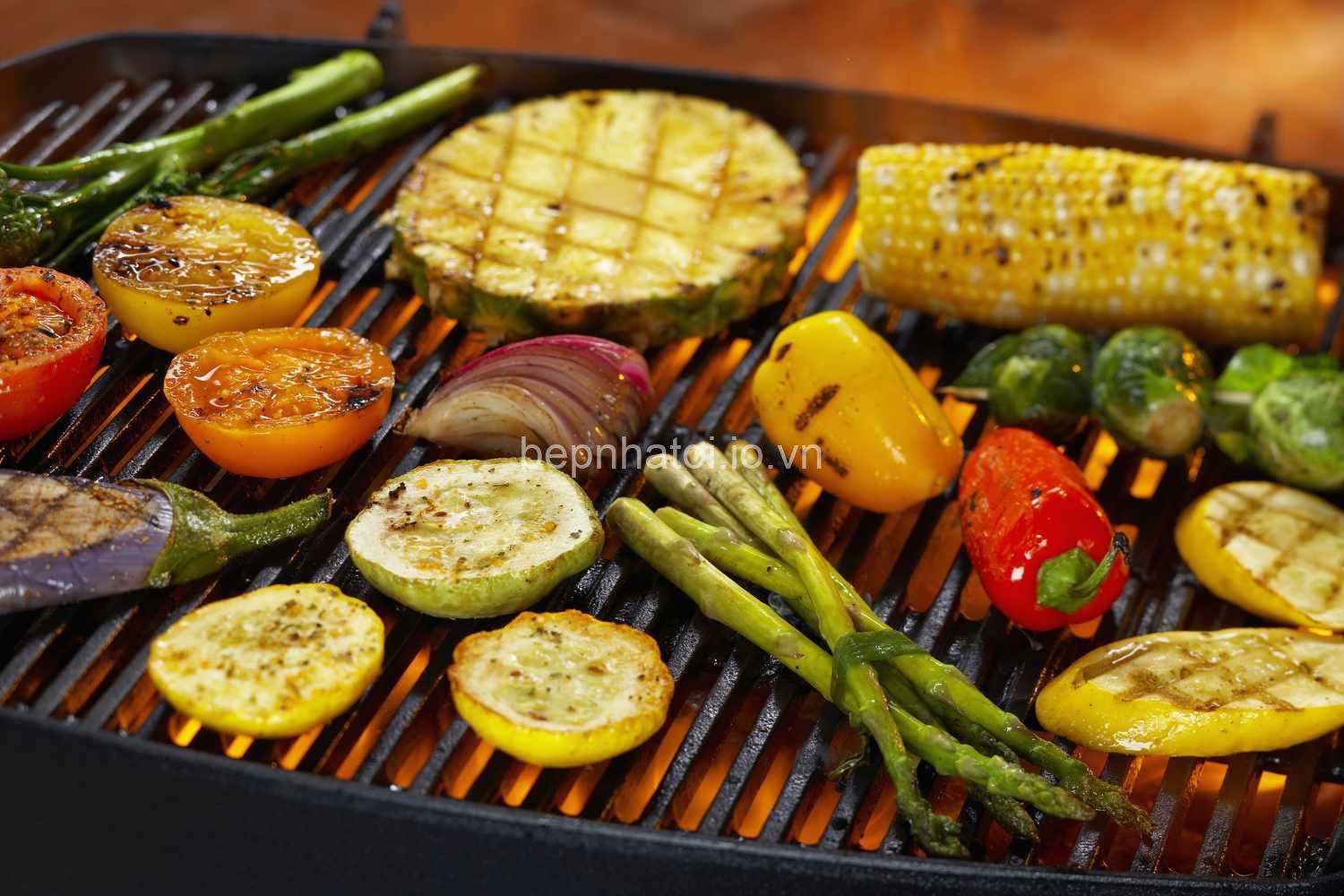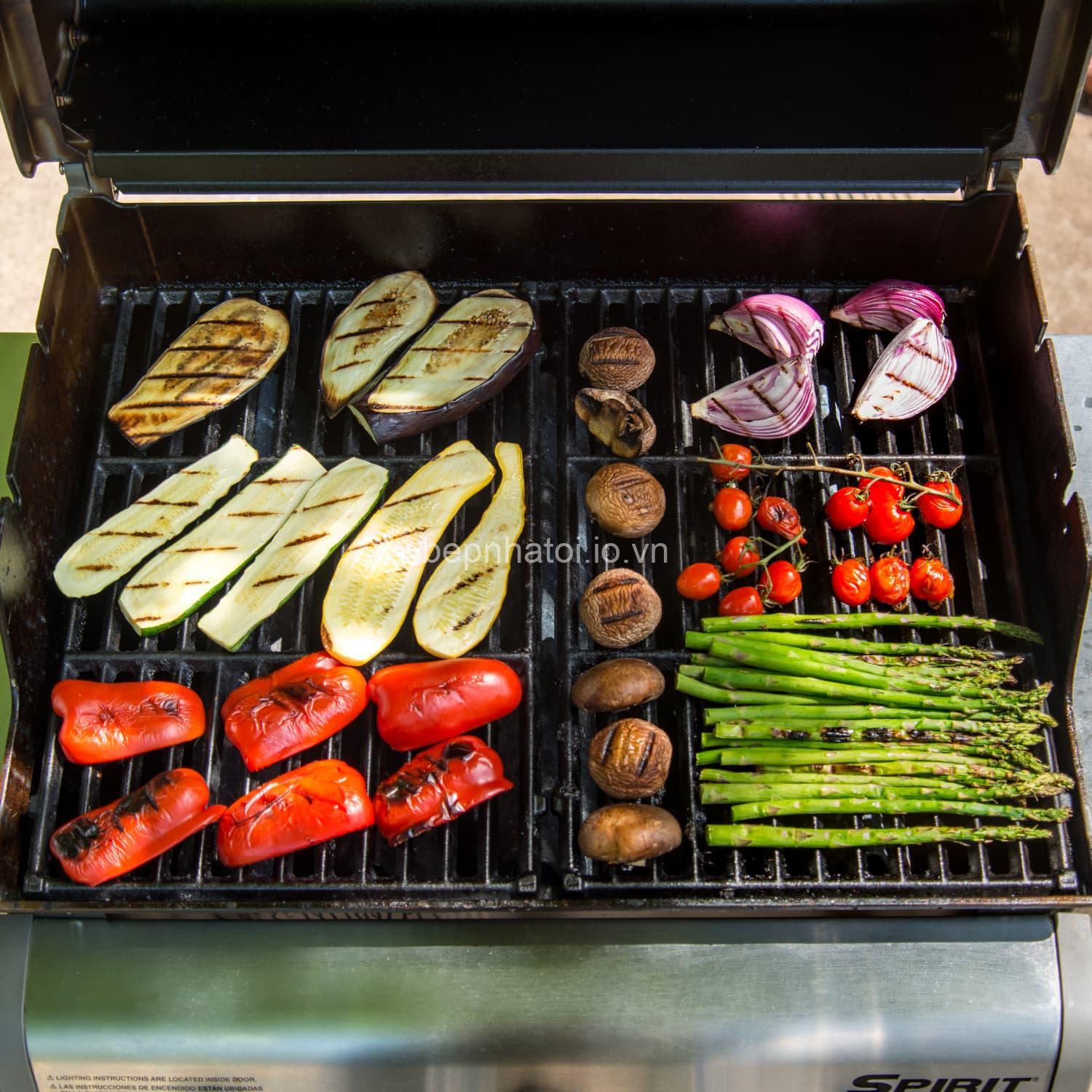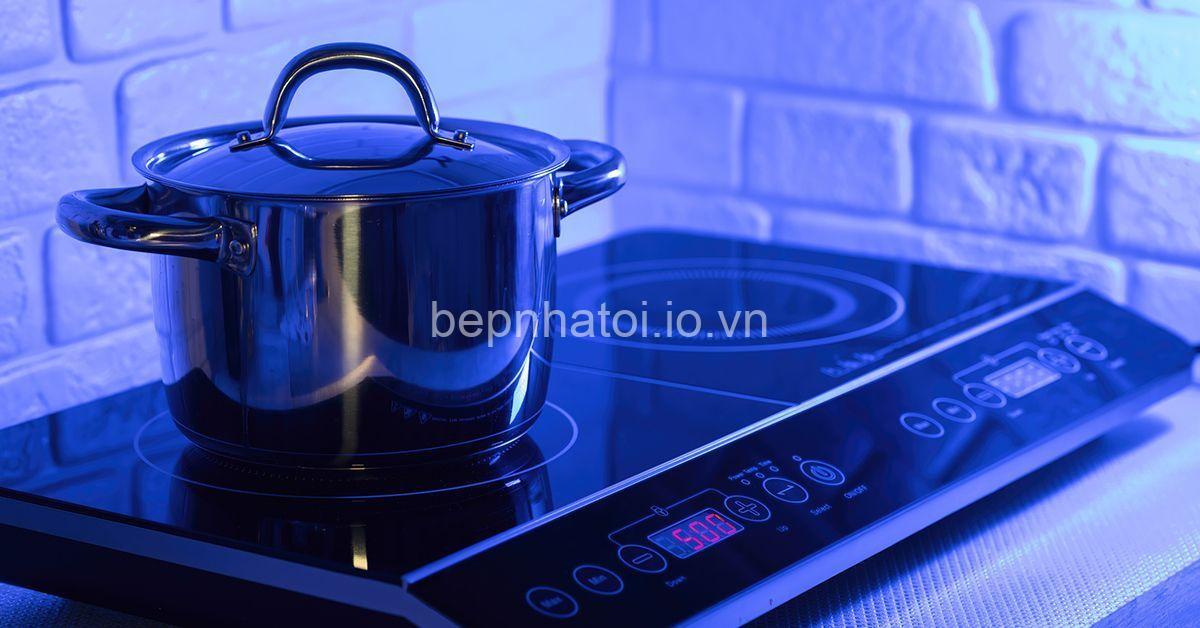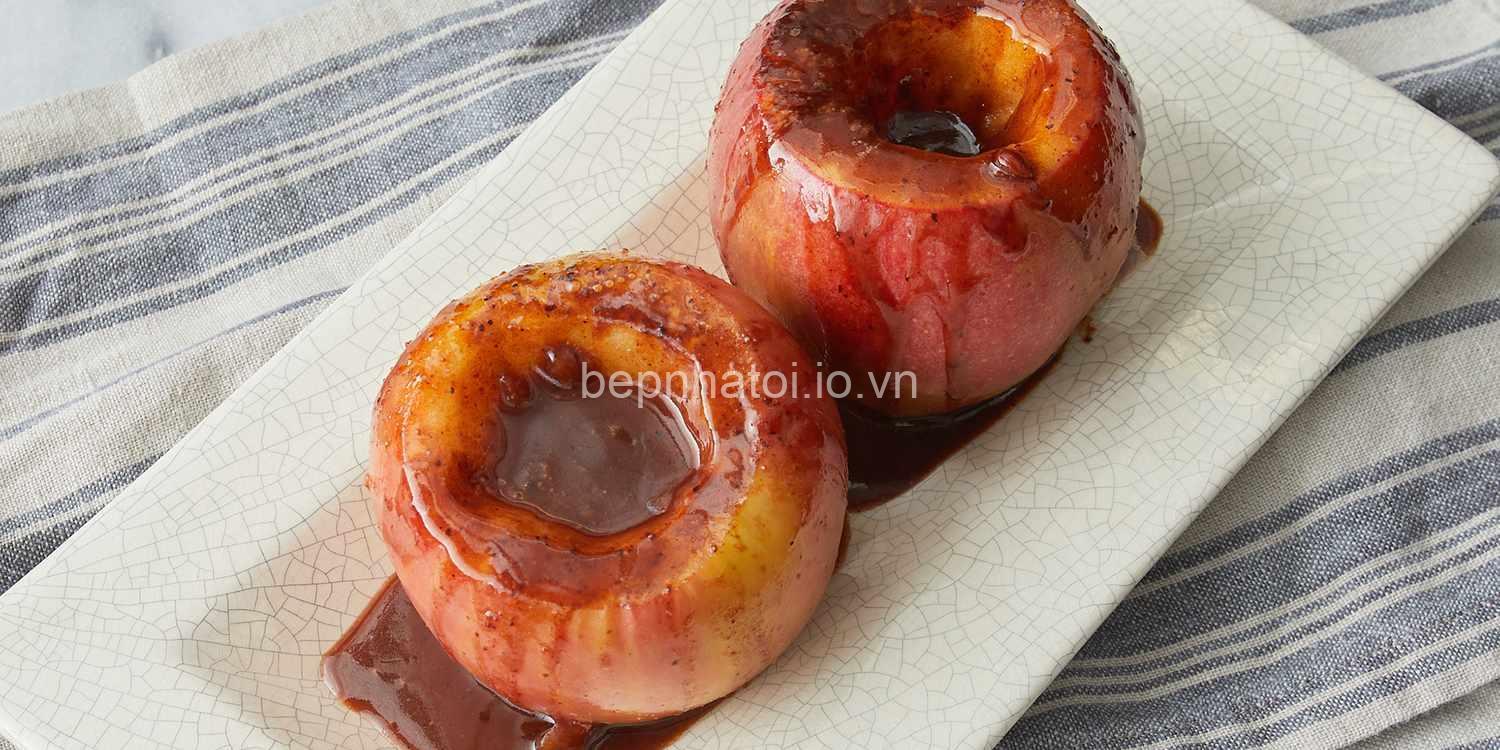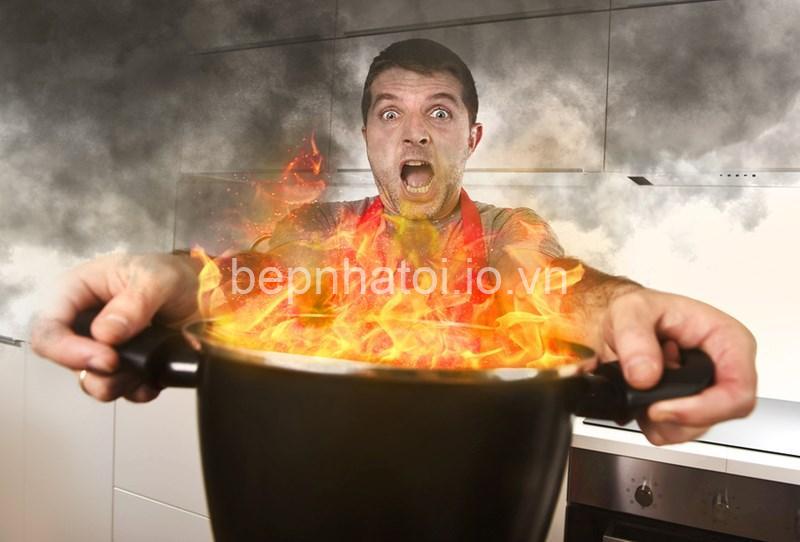
Choosing the Right Fuel for Your Grill: A Comprehensive Guide. In today’s article, bepnhatoi.io.vn will explore with you in the most detailed and complete way. See now!
Understanding Your Grilling Needs
Before you can choose the right fuel, you need to understand your grilling needs. Grilling style, frequency of use, space constraints, and environmental considerations are all important factors to consider.

Grilling Style
-
Direct vs. Indirect Grilling: Direct grilling involves placing food directly over the heat source, while indirect grilling involves placing food away from the heat source. Direct grilling is great for searing steaks, burgers, and other meats, while indirect grilling is better for slow-cooking roasts, poultry, and vegetables.
-
High Heat vs. Low and Slow Cooking: High-heat grilling is ideal for searing meats and creating a crispy crust, while low and slow cooking is perfect for tenderizing tougher cuts of meat and adding smoky flavor. The type of fuel you choose will directly affect the heat you can achieve.
Frequency of Use
- Casual Grilling vs. Frequent Use: If you only grill a few times a month, you might be more interested in a fuel option that’s easy to use and doesn’t require a lot of maintenance. But if you grill several times a week, you might prefer a fuel option that’s more convenient and cost-effective in the long run.
Space Constraints
- Storage Requirements for Fuel: Some fuel options, like propane, require tanks that need to be stored safely and securely. If you have limited storage space, you might want to consider a fuel option that’s more compact.
Environmental Considerations
- Impact of Different Fuel Types: Each fuel type has a different environmental impact. You might want to consider the carbon footprint of your fuel choice, especially if you’re concerned about sustainability.
Fuel Types: A Detailed Comparison
Now let’s take a closer look at the most common fuel types for grilling:
Charcoal
-
Types of Charcoal: Lump charcoal is made from natural wood and is often considered to produce a more flavorful and consistent burn than briquettes. Briquettes are made from compressed wood scraps and binders.
-
Pros and Cons:
-
Pros:
- Provides a smoky flavor
- Creates high heat
- Relatively inexpensive
-
Cons:
- Requires more time to heat up
- Can be messy
- Produces more smoke
-
-
Heat Output, Flavor, Convenience, and Environmental Impact:
- Heat Output: High
- Flavor: Smoky
- Convenience: Moderate
- Environmental Impact: Moderate
Propane
-
How Propane Works: Propane gas is stored in tanks and delivered to the grill through a hose.
-
Pros and Cons:
-
Pros:
- Easy to use and control
- Heats up quickly
- Produces consistent heat
- Can be used for multiple grilling styles
-
Cons:
- Can be expensive
- Requires a propane tank
- Can be bulky and difficult to store
-
-
Heat Control, Convenience, and Cost Considerations:
- Heat Control: High
- Convenience: High
- Cost: High
Natural Gas
-
Benefits and Drawbacks:
-
Benefits:
- Very convenient
- Heats up quickly
- Produces consistent heat
- Can be cheaper than propane over time
-
Drawbacks:
- Requires a natural gas line
- Can be expensive to install
-
-
Installation and Connection Requirements:
- Natural gas requires a dedicated gas line and a qualified technician to install it.
Other Fuel Options:
-
Wood Pellets: Wood pellets offer a clean, consistent burn and produce a smoky flavor. They’re typically used in pellet grills.
-
Electricity: Electric grills use electricity to generate heat. They are convenient and easy to use, but they can’t reach the same temperatures as gas or charcoal grills.
-
Suitability for Specific Grilling Needs: The suitability of different fuel options will vary depending on your individual needs and preferences.
Key Factors to Consider When Choosing Fuel
Here’s a closer look at some key factors to consider when choosing the right fuel for your grill:
Heat Control
-
Fuel’s Ability to Regulate Heat: The ability to control heat is crucial for successful grilling. Different fuels have different heat control capabilities. For example, charcoal is generally harder to control than propane.
-
Impact on Different Grilling Styles: Heat control is especially important for different grilling styles. For example, searing requires high heat, while slow-cooking requires low and even heat.
Flavor
-
Flavor Imparted by Different Fuels: Fuel type can significantly impact the flavor of your grilled food. Charcoal, for example, is known for its smoky flavor, while propane and natural gas tend to produce a more neutral flavor.
-
Importance of Charcoal for Smoky Flavor: If you’re looking for a smoky flavor, charcoal is your best option.
Convenience and Cost
-
Comparison of Convenience and Cost for Each Fuel: Consider the convenience and cost of each fuel type. Propane and natural gas are generally more convenient than charcoal, but they can also be more expensive.
-
Cost of Fuel, Equipment, and Maintenance: Factor in the cost of fuel, equipment, and maintenance when making your decision.
Safety
-
Safety Considerations for Each Fuel Type: Always practice safety when using any type of grill fuel. Carefully read and follow the manufacturer’s instructions.
-
Proper Handling and Storage Techniques: Learn how to properly handle and store different fuel types.
Choosing the Right Fuel for Your Needs
Now that you have a better understanding of the different fuel types and factors to consider, let’s look at some recommendations:
Best Fuel for High Heat Grilling:
-
Charcoal: If you need to sear steaks, burgers, or other meats at high heat, charcoal is a good choice.
-
Propane: You can also achieve high heat with propane.
Best Fuel for Low and Slow Cooking:
-
Charcoal: You can use a charcoal grill to slow-cook roasts, poultry, and vegetables.
-
Pellet Grills: Pellet grills are specifically designed for low and slow cooking and can produce consistent heat for hours.
Best Fuel for Convenience and Cost-Effectiveness:
-
Propane: Propane is a convenient and cost-effective option for frequent grillers.
-
Natural Gas: If you have a natural gas line, natural gas can be a very cost-effective option.
Best Fuel for Environmental Awareness:
-
Wood Pellets: Wood pellets are a renewable fuel source and have a lower environmental impact than propane or natural gas.
-
Charcoal: Look for charcoal made from sustainable sources.
Conclusion
When it comes to choosing the right fuel for your grill, there’s no one-size-fits-all answer. Carefully consider your individual needs, grilling style, and budget. Do your research, experiment with different fuels, and find the perfect match for your grilling experience. Remember, you can always ask for advice from your local grilling expert.
If you’re looking for more information on choosing the right grill or pet products, be sure to check out my website, bepnhatoi.io.vn. I’d love to hear from you. Feel free to leave a comment below, share this article with your friends, and explore more content on my site!
FAQ: How do I choose the right fuel for my grill?
What is the best fuel for flavor?
Charcoal is generally considered the best fuel for flavor, especially if you’re looking for a smoky taste. Propane and natural gas tend to produce a more neutral flavor.
What is the most convenient fuel option?
Propane and natural gas are generally the most convenient fuel options. Charcoal can be more time-consuming to set up and maintain.
Which fuel is the most cost-effective?
Natural gas can be the most cost-effective option if you have access to a natural gas line. However, the cost of installation can be significant. Propane is generally more expensive than natural gas, but less expensive than charcoal.
What are the safety considerations for each fuel type?
Always handle fuel carefully and follow the manufacturer’s instructions. Store fuel safely and out of reach of children. Never leave a grill unattended while it is in use.
What is the best fuel for grilling different types of food?
The best fuel for grilling different types of food depends on the desired cooking style and temperature. For example, searing steaks requires high heat, while smoking meats requires low and slow heat.
